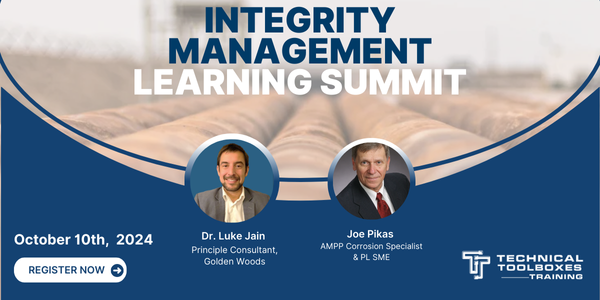Understanding and Recognizing Pipeline Defects (previously recorded live-training)
-
Author: Technical Toolboxes
-
Level: Intermediate
-
Study time: 4.5 hours
Write your awesome label here.
Add your short course description here
-
Video time: 4 hours
-
Exams: 1
Patrick Jones
Content SME-V.P. for Pipeline Integrity and Corrosion Engineering Services for Technical Toolboxes
ABOUT PATRICK
Joe is a AMPP Corrosion Specialist & PL SME. He has over 50 years of experience in pipeline construction, operations, corrosion control design and implementation.
His expertise is in pipeline integrity management, coating materials selection, cathodic protection design, testing, internal and external corrosion metal loss.
In addition, he has contributed to over 50 papers to industry trade magazines, such as NACE/AMPP. Pipeline Gas and Journal as well as other publications and conferences.
Finally, Joe is a past recipient of the NACE/AMPP Distinguished Service Award as well as industry awards from AGA, GTI, INGAA, NACE, OPS and PRCI.

